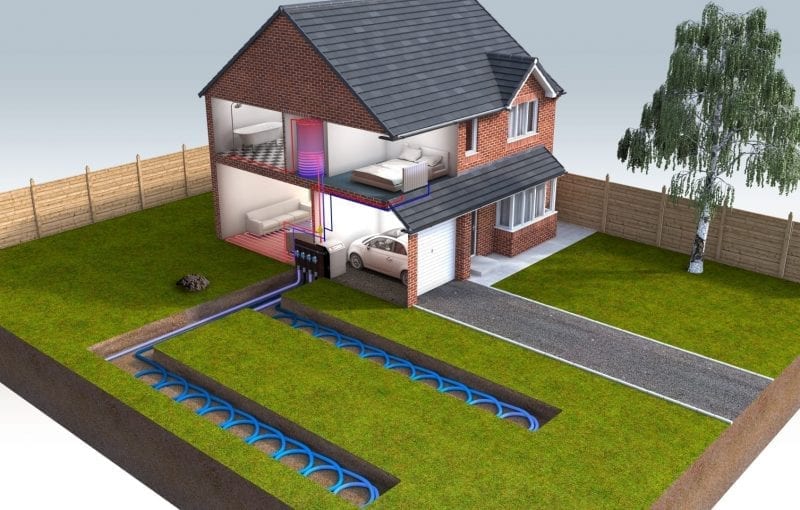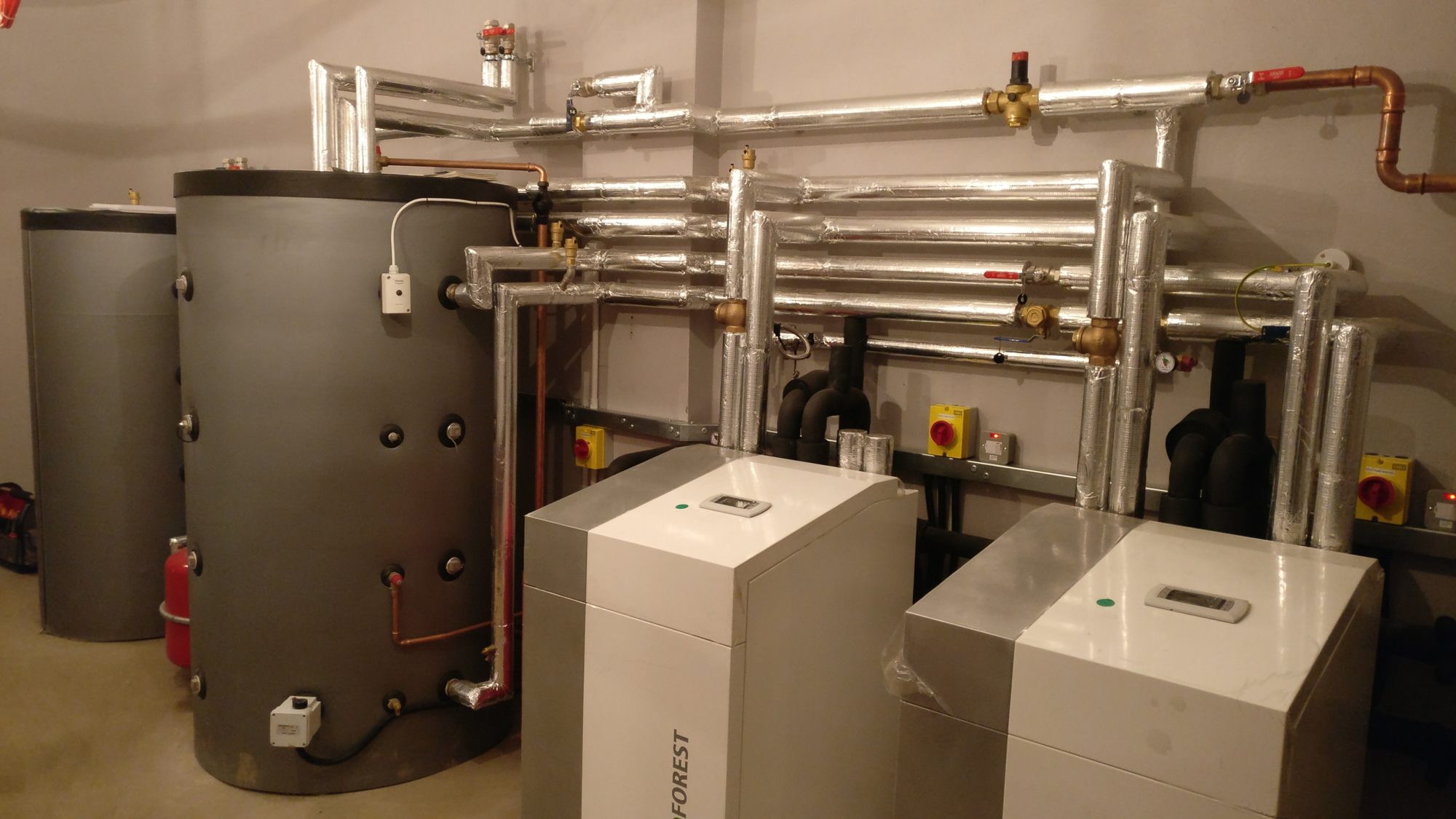With air source and ground source heat pumps what are the key requirement to enable cheap and efficient heating and hot water in the UK?
In order to enable cheap and efficient heating and hot water with air source and ground source heat pumps in the UK, there are several key requirements:
 'Adequate' {Extremely High Levels of:} insulation: The building must have adequate insulation to minimize heat loss and improve the efficiency of the heat pump system. By "Adequate" we mean' substantially in excess of current building regulations standards'. Like the German Passivehaus standard. This would also presuppose an efficient {mechanical or passive} ventilation system with heat exchanger technology and "Earth Pipes" to pre-heat [winter] or pre-cool [Summer] incoming fresh air. See Passivehaus article HERE AT THIS WEB LINK.
'Adequate' {Extremely High Levels of:} insulation: The building must have adequate insulation to minimize heat loss and improve the efficiency of the heat pump system. By "Adequate" we mean' substantially in excess of current building regulations standards'. Like the German Passivehaus standard. This would also presuppose an efficient {mechanical or passive} ventilation system with heat exchanger technology and "Earth Pipes" to pre-heat [winter] or pre-cool [Summer] incoming fresh air. See Passivehaus article HERE AT THIS WEB LINK.- Proper sizing of the system: The heat pump system must be properly sized to match the heating and hot water demands of the building. Over-sized or undersized systems can result in inefficiencies and higher costs.
- Suitable location: For ground source heat pumps, the site must have suitable geology and hydrology to support the installation of the ground loop. For air source heat pumps, the location must have adequate airflow and temperature differentials to enable efficient operation.
 High-efficiency heat pump equipment: Choosing a high-efficiency heat pump with a high coefficient of performance (COP) can significantly improve the efficiency and cost-effectiveness of the system.
High-efficiency heat pump equipment: Choosing a high-efficiency heat pump with a high coefficient of performance (COP) can significantly improve the efficiency and cost-effectiveness of the system.- Energy-efficient hot water storage: Using an energy-efficient hot water storage tank can reduce the amount of energy required to heat water and improve the overall efficiency of the system. This is because an highly insulated hot water storage tank can act as a 'buffer' or heat-store, between energy supply and demand - particularly relevant at colder period, say night time in winter - so supplement the energy needs from the heat store.
- Climate-appropriate design: The design of the building should take into account the local climate and weather conditions to optimize the performance of the heat pump system. This would also include aspects of the property and its orientation {to the Sun, and prevailing winds}, earthworks and planting to mitigate 'wind chill' effects on walls, windows and roofs. PDF scan of 1981 Research Article {Wind and Building Energy Consumption: an Overview} HERE
By meeting these requirements, air source and ground source heat pumps can provide cost-effective and efficient heating and hot water in the UK. As can be seen in some of the photo's, particularly with Ground-Source Heat Pumps, associated equipment, controllers, buffer tanks and installation, considerable space is needed. Therefore we strongly recommend new properties be build with a basement {in light of the deeper foundations required from Building Control this may not be as expensive as imagined}. Additional benefits of basement include, Rainwater Storage, Computer Sever Room, Distribution to the floor above for Internet, Telephone, Sound Systems etc.
